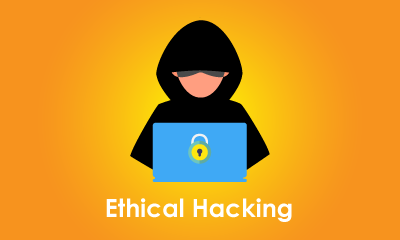- Home
- Blog
- Cyber Security
- Cyber Security Best Practices

- Cyber Security Career Path
- Cyber Security Certifications
- Cyber Security Frameworks
- Cyber Security Interview Questions
- Cyber Security Threats and Prevention Methods
- Top 10 Cyber Security Tools In 2024
- How to Become a Cyber Security Engineer
- Reasons to Learn Cyber Security
- What is Cyber Security?
- New Technology Trends in 2024
- Spoofing vs Phishing
- Penetration Testing Interview Questions
- Network Security vs Cyber Security
- What is Penetration Testing?
- Bug Bounty Interview Questions
- CRISC VS CISA
- Cyber Security VS Data Science
- Cybersecurity Projects and Use Cases
Cybersecurity is the most important factor to safeguard the data of an organization. Even if it is a small scale or large scale company, everyone has to ensure that the company's data is safe and secure. Yes, Cybersecurity is a practice of Safeguarding the computers, servers, networks, electronic systems, mobile phones, and especially the data from malicious attacks.
To keep an eye on confidential data, Companies are investing more in cybersecurity to eliminate the risk of the data breach. A cyber attack can from any means from inside your company or from an external source. But, the question is How far is your data secure? How can you identify the threats before your data gets corrupted? We believe prevention is better than cure. Start to enhance your cybersecurity policies. Here are the Top 10 best practices for cybersecurity to prevent your data from cyber threats.
Gain essential skills to defend your organization from security threats by enrolling in our Cyber Security Training.
Top 10 Best Practices for Cybersecurity
Enable Best firewall protection
The use of firewall protection for the company network is the best way to prevent cyber attacks. The firewall prevents unauthorized users from accessing their websites, emails, and other sources of information that can be accessed through the web. It is also important to get installed the firewall software for an employee who is working with a company website.
Update your security software
Ensure your security software, web server, and the operating system to keep updated with the latest versions. Anti-virus and Anti-malware protections are revised to achieve the target to fight against security breaches. It is essential to install the updated security software on all your devices and the network so that it helps to protect from the latest cyberthreats.
Related Post: Cyber Security Frameworks.
Enforce strong and safe password
It is important to handle the unique and complex password that can help to avoid cyber thieves from accessing the company information. We all know, a strong password contains 10 characters including numbers, symbols, lowercase, and uppercase but the thing is to change the password regularly. This helps to avoid hackers to access the data.
Use multi-factor authentication
Multi-factor authentication helps to protect the data by adding an extra layer of security to the data that helps to avoid hackers to authenticate. Even if the hacker grabs your password, they would be required to cross the second or third factor of authentication such as security code, OTP, fingerprint, voice recognition like more. It gives an advanced security strategy to safeguard your data and also allows you to distinguish among shared account users by improving access control.
Regular Data Backup
Backing up the data has gained increased relevance in recent years. Cyberthieves often aim at your data, so it is essential to back up your data files and stored in a safe location as per the company’s security policies. It is important to safeguard data thoroughly protected, encrypted, and frequently updated.
Checkout Cyber Security Interview Questions
Raise awareness among employees
These days, companies take time to educate their employees regarding cybersecurity policies and updates. Every employee has to be responsible to be aware of the company’s cybersecurity policy. It is required to know the cyber threats faced by your company and the importance of security measures with the real-time security breaches that have happened to examine what are the consequences faced because of cyberattacks and how difficult to recover the process.
Also, few companies are allowed to get feedback with a current corporate security system and bring up new ideas on how to implement robust security with an efficient workflow.
Monitor Third-party controls
Controlling third-party access is a crucial part of a security strategy. A third-party person can have open access to your data and of course, it entails a higher risk of insider attacks. It is essential to monitor the third-party actions to protect your data from breaches. It is important to restrict third-party access to a certain area and note to deactivate the access whenever they finish the work.
Ignore pop-ups, links and unnecessary messages
With just one click, you are responsible to enable a hacker to get access to your company’s network. Yes, that’s why it is important to be cautious of links, attachments, and emails from unrecognized senders. So never give personal or company details in response to emails, pop-ups, attachments, and any other forms of communication that you don’t initiate. Your company can help by employing the email authentication technology that blocks these suspicious emails.
Monitor the privileged users
Privileged users can be one of the greatest assets of a company or one of the greatest threats to data security. Yes, privileged account users have all the ways to corrupt your data. No matter how you trust your employees, anything can happen. So, limit the number of privileged users and make sure that the privileged accounts are deactivated immediately whenever they are terminated. It is required to enable user activity monitoring solutions to record any suspicious actions inside your network.
Related Article: Cyber Security Career Path
Prepare the cybersecurity policies
A written policy serves as a formal guide to all cybersecurity measures used in the company. It allows the security specialists and the employees to be on the same line and provides a way to enforce the rule that protects the data. However, the workflow of each department is unique and can be easily disrupted by unnecessary measures. It is required to keep updating the policies to empower the capacity of security measures that helps to stop malicious attacks.
On wrapping up, these cybersecurity practices can help to strengthen your security system to prevent data breaches. Every employee has to be loyal to your company and should not leak the company data, confidential information, or any other intellectual property details for any instances. It's the part of your responsibility to ensure safe online behaviour and to reach out to your security department whenever you find anything suspicious in your network.
 On-Job Support Service
On-Job Support Service
Online Work Support for your on-job roles.

Our work-support plans provide precise options as per your project tasks. Whether you are a newbie or an experienced professional seeking assistance in completing project tasks, we are here with the following plans to meet your custom needs:
- Pay Per Hour
- Pay Per Week
- Monthly
| Name | Dates | |
|---|---|---|
| Cyber Security Training | Feb 21 to Mar 08 | View Details |
| Cyber Security Training | Feb 24 to Mar 11 | View Details |
| Cyber Security Training | Feb 28 to Mar 15 | View Details |
| Cyber Security Training | Mar 03 to Mar 18 | View Details |

Sandeep is working as a Senior Content Contributor for Mindmajix, one of the world’s leading online learning platforms. With over 5 years of experience in the technology industry, he holds expertise in writing articles on various technologies including AEM, Oracle SOA, Linux, Cybersecurity, and Kubernetes. Follow him on LinkedIn and Twitter.















